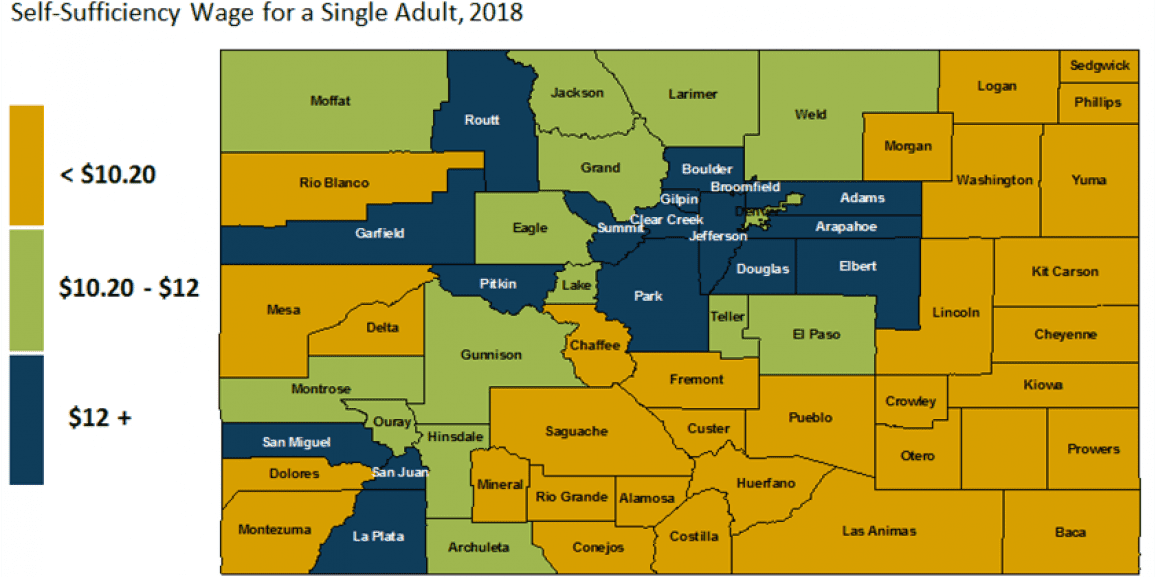A summary of the list of recommendations on the implementation of the OBBBA in Colorado regarding public benefits systems and work requirements.
Recent articles
CCLP testifies in support of Colorado’s AI Sunshine Act
Charles Brennan provided testimony in support of Senate Bill 25B-004, Increase Transparency for Algorithmic Systems, during the 2025 Special Session. CCLP is in support of SB25B-004.
Coloradans launch 2026 ballot push for graduated state income tax
New ballot measure proposals would cut taxes for 98 percent of Coloradans, raise revenue to address budget crisis.
CCLP statement on the executive order and Colorado’s endless budget catastrophe
Coloradans deserve better than the artificial budget crisis that led to today's crippling cuts by Governor Jared Polis.
Let Colorado communities set their own minimum wage

The cost of living varies substantially across the state of Colorado — making it more challenging for many Coloradans to make ends meet. Though Colorado voters in 2016 approved an incremental increase in the state’s minimum wage to $12 an hour by 2020, the current minimum wage of $10.20 an hour is too low for Coloradans working and living in higher-cost communities across the state. Even when the minimum wage reaches $12, we know that it still will not be enough for people to live on in many communities.
According to numbers updated from the Self-Sufficiency Standard for Colorado, an estimate of how much money people need to earn to support their basic needs, a single person working full-time at $10.20 an hour would struggle to make ends meet in half of Colorado’s counties.
The situation is even more precarious for families with children. Once we add child care into the equation, a single adult with one child living anywhere in Colorado would have to work two to three full-time, year-round, minimum-wage jobs to get by. Even two adults each working a full-time, minimum-wage job fall short in providing for a family of four in many communities.
While the Colorado economy is booming in many respects, low-wage workers are still struggling because wages have remained mostly stagnant — even though the cost of living continues to increase year after year. Minimum wage workers in Colorado include nursing assistants, home health care workers, preschool teachers and emergency medical technicians providing essential services in our communities. According to recent data from the National Low Income Housing Coalition, the hourly wage needed to afford a one-bedroom apartment in the majority of counties across Colorado exceeds the current minimum wage.
Fortunately, state legislators are considering legislation that would let communities raise the minimum wage to better meet the needs of its residents. Last week, the House Local Government Committee approved HB 1368, which would repeal a bill enacted in 1999 that prohibits Colorado’s cities and towns from establishing a higher minimum wage than the state minimum wage.
Research indicates that restoring power to local governments to set a local minimum wage above the statewide minimum can have positive results for the economic security of workers, the bottom line of businesses and the health of local economies. HB 1368 simply allows communities to adjust the minimum wage to what they believe is appropriate for their locality.
At a time when more jobs are paying below what it takes to get by, why continue to limit the ability of local jurisdictions to exert local control over their local economy to better meet the needs of their residents?
Passing HB 1368 will help us create a Colorado that works for all of us, not just the wealthy few and big corporations. It would enable people to earn decent wages so that more working Coloradans can support their families.
Working families and the middle class are the engines of the economy. When we have good jobs that let us support our families, educate our children, afford our health care, shop in our neighborhoods and retire in security, we drive the economy forward and build thriving communities.
HB 1368 passed the House on Thursday, April 26 and will now move to the Senate for consideration. We hope you will join us in supporting this important measure that gives local control to communities to set a minimum wage at a level that allows workers to live and thrive where they work.
-By Jesus Loayza
